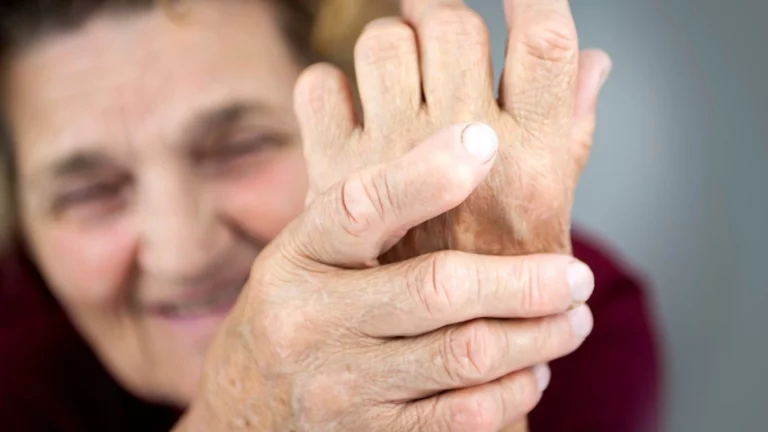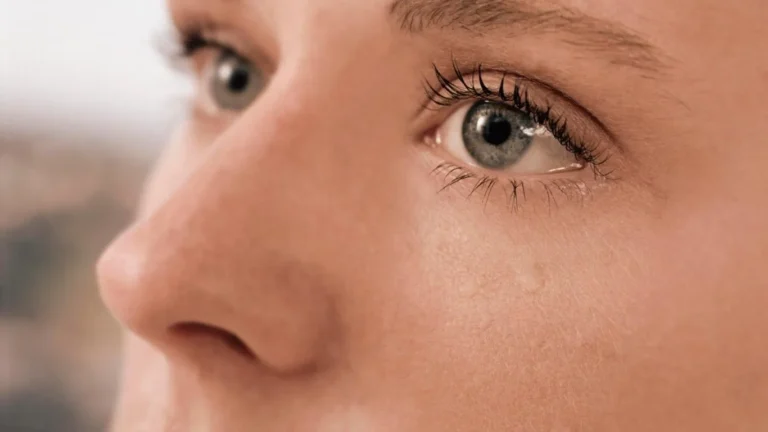Rheumatoid Arthritis and Mental Health Tips – A Balanced Approach for Well-Being
Living with rheumatoid arthritis (RA) can be tough, and it’s not just the physical pain that you have to contend with. Mental health struggles often tag along, too. Let’s dive into some real-world tips on how to look after both your body and mind while dealing with RA.
If you’ve been diagnosed with rheumatoid arthritis, you probably know that it’s not just about aching joints and limited mobility. The emotional and mental toll that comes with a chronic condition like RA is huge. The constant pain, fatigue, and unpredictability of flare-ups can all lead to stress, anxiety, and even depression. But there’s good news: there are lots of strategies that can help you keep your mental health in check while managing RA. Let’s explore these tips and tricks to help you find some balance in your life!

Why Rheumatoid Arthritis and Mental Health Go Hand in Hand
When you’re dealing with RA, your mental well-being can take a backseat to physical pain. The mental health effects of RA are often overlooked, but the connection between chronic illness and mental health struggles is real. Here’s why:
- Pain and Fatigue: Constant pain can take a toll on your emotional state. It’s hard to feel motivated or positive when your joints are inflamed, and fatigue can make even the simplest tasks seem impossible. This can lead to feelings of frustration, hopelessness, and depression.
- Social Isolation: RA can impact your ability to engage in social activities, which might leave you feeling isolated. You might find yourself cancelling plans or not joining in on activities, which can result in loneliness and a sense of disconnection.
- Uncertainty: The unpredictable nature of flare-ups means that you can never fully plan your day or week. This uncertainty can bring on anxiety and stress, especially if you’re trying to keep up with work or family responsibilities.
It’s clear that the physical symptoms of RA aren’t the only thing you need to manage. Mental health plays a crucial role in the overall treatment and well-being of someone living with rheumatoid arthritis.

Tips for Managing Mental Health with Rheumatoid Arthritis
Here’s the thing: managing RA and mental health isn’t a one-size-fits-all solution. It takes a mix of physical, emotional, and social strategies to help you thrive. These tips might help:
1. Practice Mindfulness and Relaxation Techniques
Mindfulness and relaxation techniques, like meditation or deep breathing, can be incredibly helpful for reducing stress and anxiety. Taking just 5–10 minutes a day to calm your mind can really make a difference. When you’re in a flare-up, focusing on your breath and clearing your head can help shift your focus from pain to peace.
A quick tip? Try breathing in for a count of four, holding it for four, and then exhaling for a count of four. It sounds simple, but it can help ground you when anxiety is creeping in.
2. Stay Active (Within Your Limits)
Exercise is key to both physical and mental well-being, but when you’ve got RA, it’s important to listen to your body. Low-impact exercises like swimming, walking, or yoga can improve your mood and reduce the physical discomfort of RA. Plus, physical activity helps release endorphins, your brain’s natural feel-good chemicals.
Even a short walk each day can help boost your mood, so don’t underestimate the power of gentle movement. Just make sure to adjust the intensity based on how your body is feeling!

3. Get Support – Reach Out to Others
Living with RA can feel isolating, but connecting with others who understand what you’re going through can be a game-changer. Whether it’s a support group, family, or friends, talking about your struggles and triumphs can lighten the emotional load. Online communities can also be a great way to connect with people who know exactly what you’re experiencing.
You might even consider finding a therapist who specializes in chronic illness to talk through the mental health challenges you face. Having someone to talk to who gets it can make a big difference.
4. Focus on Nutrition
Good nutrition is important for both your physical health and mental clarity. Omega-3 fatty acids found in foods like fish, walnuts, and flaxseeds have anti-inflammatory properties that can help with both joint health and mental health. A balanced diet rich in fruits, vegetables, and whole grains can support energy levels and overall well-being.
Sometimes the constant fatigue that comes with RA can make eating healthy seem like a chore, but small, nutrient-rich meals can actually help your mood and energy. Don’t forget to stay hydrated too – dehydration can make everything worse, including mental clarity.
5. Manage Expectations and Set Realistic Goals
Living with a chronic illness means adjusting your expectations. You won’t always be able to do everything you used to, and that’s okay. Set realistic goals for yourself and give yourself credit for even the smallest achievements. Managing your mental health also means not beating yourself up for things you can’t control.
If you have to cancel plans or take a nap during the day, it’s not a failure – it’s self-care. Adjusting your goals to fit your health needs helps reduce stress and prevent feelings of inadequacy.
Building a Support System: A Must for Mental Health
Support is one of the biggest factors in managing RA and mental health. Whether it’s leaning on family and friends, talking to a mental health professional, or joining an online RA community, knowing that you have others to lean on can make everything a little easier.
Sometimes, just having someone who understands the unique challenges of RA can be incredibly comforting. Don’t be afraid to reach out for help when you need it. It’s not a sign of weakness – it’s strength.
Conclusion: A Holistic Approach to RA and Mental Health
Taking care of your mental health while managing rheumatoid arthritis is just as important as taking care of your joints. By combining physical and mental health strategies, you can find a balance that works for you. It might not always be easy, but with the right tools and mindset, you can navigate the ups and downs of living with RA while keeping your mental health intact.
Remember: you’re not alone, and there’s no shame in asking for help. You’ve got this!
Appendices
FAQs
- How can rheumatoid arthritis affect my mental health?
RA can lead to feelings of anxiety, depression, and stress due to the physical pain, fatigue, and uncertainty of flare-ups. Managing both your physical and mental health is important for overall well-being.
- What are some good exercises to do with RA?
Low-impact exercises like swimming, walking, and yoga are great options for people with RA. They help improve flexibility and reduce stress without putting too much strain on the joints.
- How do I deal with the fatigue of RA?
It’s important to listen to your body and rest when you need to. Try to incorporate short naps during the day and keep your sleep schedule regular. Managing stress also helps with fatigue.
- Can therapy help with the mental toll of RA?
Yes! Therapy, particularly cognitive behavioral therapy (CBT), can help you manage the emotional challenges of living with RA. Support groups for RA are also great for connecting with others who understand what you’re going through.
- How do I stay positive when dealing with chronic pain?
Focus on small victories, stay connected with loved ones, and practice relaxation techniques to help you stay grounded. Positive self-talk and managing expectations can also help boost your mood.
References
- National Institute of Arthritis and Musculoskeletal and Skin Diseases (NIAMS). (2024). Rheumatoid Arthritis and Mental Health.
- American College of Rheumatology. (2023). Coping with Chronic Illness: Emotional Impact of RA.
- Mayo Clinic. (2023). Depression and Anxiety in Chronic Illness.
Disclaimer
The information provided in this article is for educational purposes only and is not a substitute for professional medical advice. Always consult with your healthcare provider regarding any concerns related to your rheumatoid arthritis or mental health. Individual experiences may vary, and professional guidance is essential for personalized care.

Tarra Nugroho is a dedicated Nurse Practitioner with a strong foundation in family and preventive care. She brings both compassion and clinical expertise to her practice, focusing on patient-centered care and health education. As a contributor to Healthusias.com, Tarra translates medical knowledge into clear, empowering articles on topics like women’s health, chronic disease management, and lifestyle medicine. Her mission is simple: help people feel seen, heard, and informed—both in the clinic and through the content she creates. When she’s not caring for patients, Tarra enjoys weekend hikes, plant-based cooking, and curling up with a good health podcast.







